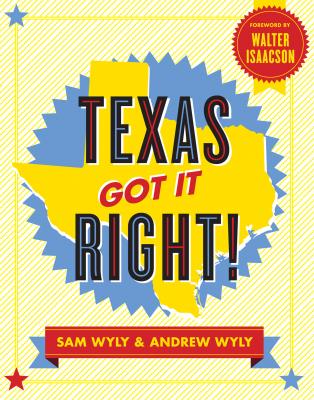ТОП просматриваемых книг сайта:
Texas Got It Right!. Sam Wyly
Читать онлайн.Название Texas Got It Right!
Год выпуска 0
isbn 9781595910769
Автор произведения Sam Wyly
Жанр Экономика
Издательство Ingram
L.A., figuring that’s where so much of the skilled talent
in the industry was concentrated. I quickly learned,
though, that L.A. is a terrible place to shoot a movie. It
is a nightmare of endless paperwork, unscrupulous
contractors, and property owners trying to milk extra
dollars out of their burdensomely expensive real
estate. A common exchange would go like this:
“Hello, I would like to rent your parking lot for a
week.”
“Sure, it’s $100 a day. What do you need it for?”
“I’m making a movie.”
“Oh, in that case it’s $200 a day.”
Months after we finished principal filming, I
returned with my crew to Texas to shoot some pickup
scenes. I was shocked at how much easier it was.
Above: Andrew Wyly poses for David Wright’s painting The
Alamo in Dripping Springs, Texas. Opposite: The not-in-my-
backyarders in other states fight against expanding offshore
drilling, but that attitude doesn’t fly in Texas.
TEXAS GOT IT RIGHT!
10
Obtaining licenses was a comparative breeze, and the
costs for everything, from equipment rentals to
meals, were much lower. People were just friendlier.
A hotel even let us shoot on its rooftop for free.
What is it that makes Texas so special; what
makes it such fertile ground for entrepreneurs? An
argument could be made that we have a lot of land
and that we are mineral-rich. But Alaska is even
bigger, geographically, with a wealth of minerals,
and it is not growing like Texas. The fact is, a big
part of what makes Texas great is not what it has but
what it doesn’t have. Namely, it doesn’t have a
bloated government bureaucracy with a vast regula-
tory system that impedes the launching and growth
of businesses. Our state constitution limits state leg-
islative sessions to 140 days every other year,
making for highly efficient, streamlined lawmaking.
And yet the government we do have protects indi-
vidual rights and private property fiercely. Texans
have always taken justice very seriously, and we
have some of the toughest penalties for lawbreakers
in the country. We also have the Texas Rangers, one
of the most illustrious law-enforcement units in
the world.
Actually, one of the only apprehensions I did have
about moving to Texas was that I’d be miles away from
my favorite burger joint, In-N-Out Burger, a Califor-
nia-based, family-owned chain that prides itself on its
ultrafresh, high-quality ingredients. For years the com-
pany has resisted expanding beyond the reach of its
California-based meat-processing facility, meaning that
if you wanted an In-N-Out burger, you would have to
live in either California or a nearby state such as
Nevada, Arizona, or Utah. But in 2010, to my delight,
In-N-Out announced that it was restructuring its
system and opening a second processing facility just
south of Dallas. It’s no coincidence that In-N-Out
chose the Lone Star State for the company’s first-ever
expansion outside its home region. It selected Texas
for the same reasons that Chief Executive magazine has
rated our state the number-one place to do business in
the country (and California the worst) eight years and
running. When it comes to being business-friendly,
Texas puts its money where its mouth is.
TEXAS GOT IT RIGHT!
11
One day I was discussing the theme of this book
with a friend from Venezuela. I explained to him
that a big chunk of Texas’s prosperity owes to two
simple things: low taxes and few regulations (the
very same factors Chief Executive magazine most
consistently cites in its rankings). “What about all
your oil?” my friend challenged. “Your state must
get a lot of wealth from its oil revenues.” His
assumption reflected an understandable confusion,
given where he grew up. Venezuela, like many other
countries around the world, has nationalized its oil
industry to finance its government, to the enormous
detriment of the private oil companies that had
developed the infrastructure and technology for
extracting all that oil. We Texans wouldn’t do any-
thing like that, I explained, because from the
beginning we’ve recognized the primacy of private
mineral rights. Texas will prosper only by working
together with oil companies and individual property
owners to mutual benefit. Judging from Venezuela’s
present-day economic and social problems, nation-
alization, if anything, has failed the very people it
claimed to benefit.
Indeed, that’s something that sets Texans apart: a
sense that private energy development goes hand in
hand with every other kind of development. I
recently attended an environmental conference
hosted by the Aspen Institute. At one of the forums a
young woman from California received an award for
leading a successful effort to shut down a gas-to-
liquid processing plant—essential for converting nat-
ural gas into clean-burning fuel for combustion
engines—that was slated to be built near

